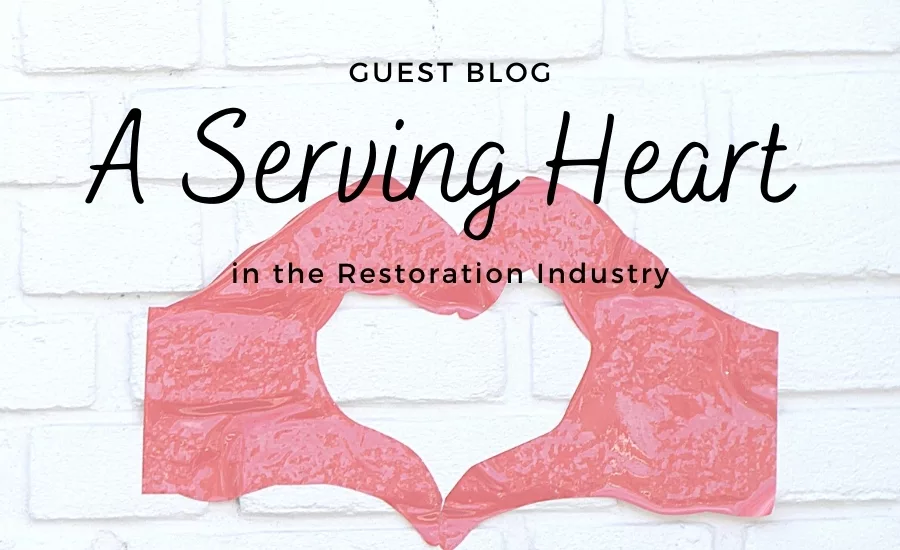Guest Blog
A Serving Heart in the Restoration Industry

Working in the restoration industry, our technicians know the importance of being prepared for the job they are responding to. What most people don’t know is our technicians have to be just as emotionally prepared as physically prepared going into a loss.
Encountering trauma in the restoration industry is something that happens often. Not only do disaster cleanup and restoration companies do crime scene and late-discovery cleanup, but a water damage, fire damage, or mold remediation job can leave the customer traumatized as well.
When we think of a water loss, we don’t associate it with being traumatic. However, I have experienced first hand how a water damage can affect the customer on an emotional level. A customer may have lost items that were of great importance to them. A customer may already be experiencing a hardship personally and are already emotionally drained; now the place that is their ultimate sanctuary has been turned upside down. A customer may not see the need for some of the services we provide to restore there home or business to pre-loss condition.
Professionalism and empathy are important in each job we encounter in our industry. We never know how the restoration process is going to affect our customer. Entering a job and setting the right expectations from the beginning helps greatly. We need to be sensitive to their needs, but also need to educate them on the process of restoring their home.
There is a fine line between empathy and professionalism that a technician needs to keep throughout the process. Showing sympathy is important, but a customer is also looking for us to lead them through this process with confidence and a positive outlook as well.
It is paramount that we approach any loss with confidence, empathy, and ownership. The customer is trusting us to help them through this experience. The customer in trusting us with restoring the sanctuary they call home, or the source of their livelihood that is their business.
We are given the choice whether or not we want to respond to a biohazardous loss (sewage, blood, bodily fluid, rodent droppings, etc); most technicians do not bow out of helping with these losses. Most technicians choose to help, because it is a privilege to help in a time of need.
Approaching a loss of life job, whether it’s a suicide, crime scene cleanup, or even a late discovery, our technicians know the environment will be different than a water leak from a fridge line. A disaster cleanup and restoration technician needs to keep the level head that the customer needs. They need to show concern, yet stay professional. They need to be empathetic, but still remain distant to stay focused and show leadership to our customer and their fellow teammates.
We are not counselors, but it is difficult sometimes when we are faced with a loss where a customer is clearly turning to us for that very thing. Setting expectations and remaining professional, yet kind, is the right course. We are there to help in this time of need, but we must remember to never overstep our boundaries and remaining focused in a must.
Serving is what we do. It takes a certain kind of person to thrive and enjoy the kind of work we do day in and day out. I for one, am proud to respond to sensitive/bio losses, because it is a much needed service. It’s a feeling that is very distinct yet important. And yes, it can be emotionally difficult. When you know you have helped someone through a traumatic and emotional time in their life, there is a sense of pride that only comes from the realization that what you do is important. Leadership and professionalism are staples in the restoration industry. But, empathy and a serving heart is the most treasured quality a technician can possess.